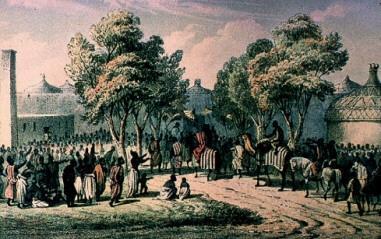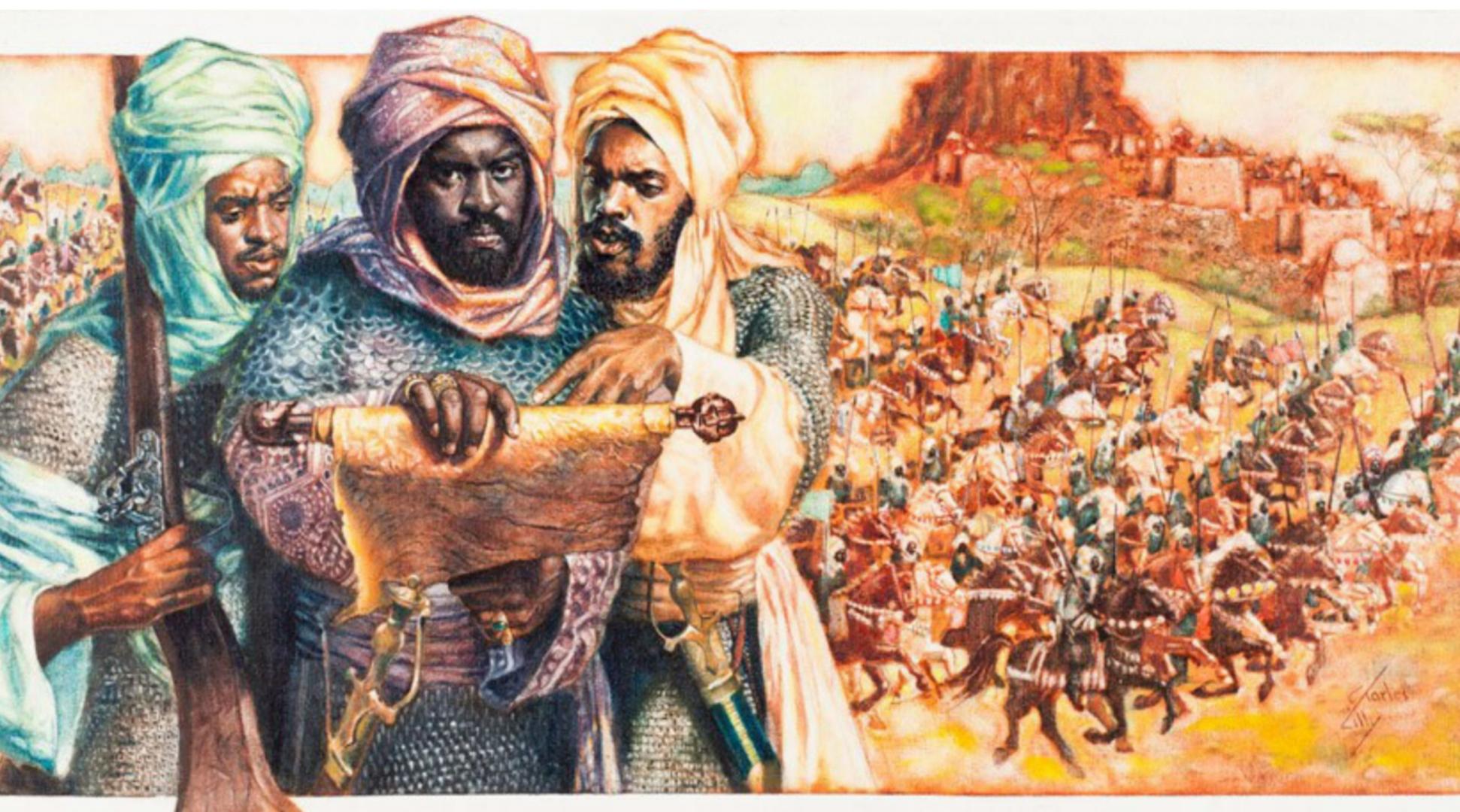The Kanem-Bornu Empire (ca. 9th century- 1900) was a large African state that extended a region that today includes the modern-day countries of Niger, Chad, Cameroon, and Nigeria. It continued to exist from the 9th century to the end of the nineteenth century.
The Zaghawa nomadic people formed the empire, and they are said to be the first in central Sudanic to acquire and exploit iron technology and horses.
The Kawar Oases, a key economic asset, were first described by Arab chroniclers in the 9th century, and by the 10th century, the ruler of Kanem gained control over them. The Kanem empire’s governmental system was most likely formed as a result of competitor nations falling under the Zaghawa’s authority.
Humai ibn Salamna, who formed the kingdom of Kanem with a capital at Njimi in the 11th century, drove away the Zaghawa clans. The Saifwa dynasty was founded, and it reigned for 771 years, making it the longest known reign in history.
The rulers of the Saifwa dynasty (called as mais) claimed descent from a heroic Arabic king, and the dynasty dramatically expanded the influence of Islam, making it the court religion. Trading, particularly in slaves, was a major source of wealth for the empire, which was aided by the empire’s location on significant North-South trade routes.
The empire pursued imperial expansion and traded for firearms and horses, amassing massive cavalry forces. Conflict arose between the monarchy and groups such as the Bulala after a mai desecrated a treasured animist religious relic.

The empire’s strategy of collateral succession (brother succeeding brother), which resulted in short reigns and unstable situations, exacerbated external conflicts. The Saifawa were compelled to flee west across Lake Chad in the late 14th century, establishing Bornu as a new kingdom. This is where the name Kanem-Bornu comes from.
Bornu extended its territory and trade, but the state’s power was undercut by threats from other competitor states, famine, trade challenges, and rebellious Fulani clans.
In 1814, a Muslim preacher named Muhammad al-Amin al-Kanemi crushed the rebellious Fulani and established a new capital at Kukawa. When his heirs assassinated the last monarch in 1846, they put an end to the Saifwa dynasty and the Kanem-Bornu Empire.
The Shehu dynasty of Al-Kanemi was short-lived, and Rabih Zubayr, a slaver and warlord, was overthrown by the French in 1900.
C: Blackpast
 The African History Truly African
The African History Truly African

